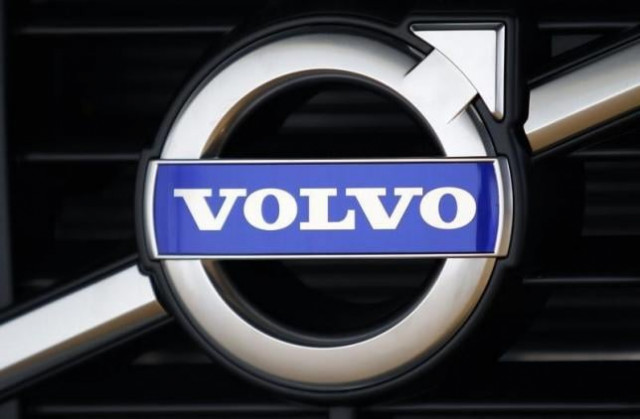Volvo to re-enter Pakistan
European company aims to sell 50 units a year, assembly line down the road

PHOTO: REUTERS
The transport network and its industry seem to be ‘in-thing’ at the moment, with the latest development being the decision of Europe’s leading bus manufacturing company Volvo to re-enter the Pakistani market.
The company had a brief relationship with the Pakistani government in the 1980s, but the project did not have a long-lasting impact, shutting down as the country paid less attention to its road networks.
However, after decades, Pakistan is exploring a new-found love for the transport sector and this has led Volvo Pakistan Limited to seriously consider catering to a growing market.
Daewoo to build two new terminals in Lahore
Volvo Pakistan Limited Chief Executive Officer Waqar Asghar said the success of the project - that will see the company provide luxury buses for road transportation - is dependent on consumer feedback, based on which the company would decide its future expansion plan.
The company will provide 50 units per annum, as it is targeting the organised inter-city bus operators who can afford the induction of Volvo buses in their existing fleet.
“We are sure that the comfort a Volvo bus provides to travellers will force operators to induct these buses,” Asghar told The Express Tribune.
“The decision to introduce Volvo bus in Pakistan is based on some important factors; the growing road-transportation network and the consumer power to spend on luxury travel.
“Another important factor is the on-going construction of motorways, especially the Lahore-Karachi Motorway. These roads are linking major cities together, hence, increasing demand for quality bus services,” he said. “The growing economic prospect of Pakistan is definitely a reason why the company has introduced this product.”
VPL is a subsidiary of Panasian Group - a supplier of Volvo-trucks, construction equipments and Sunwin buses along with some other products in the Pakistani market.
Connectivity: 200 buses to link 14 areas to metro bus
In the 1980s, the Swedish government gifted 660 Volvo buses in order to upgrade the urban transport sector of Pakistan. The Panasian group played an important role in the grant and provided consultancy, infrastructure, processes and route planning. The Punjab Road Transport Corporation was formed to execute the project.
The Panasian group managed to transfer technology to Pakistan; some of the buses were imported while the local body manufacturers were engaged in developing bodies of remaining units.
But like most endeavours, the project started facing mismanagement issues. The service ended in the 1990s and all buses were gradually disposed-off in a warehouse situated at Multan Road.
Since the resumption of operations, Volvo has successfully managed to supply 134 Metro buses for Lahore and Rawalpindi-Islamabad metro projects and is in the process to supply another 35 for Multan.
Currently, Daewoo Express is the only company that has ordered 10 Volvo buses for its fleet. Though Daewoo is considered a ‘luxury bus service’, its fleet mainly consists of buses imported from Korea. Asghar said the company is looking to tap the existing potential.
“Once demand touches 300 buses per annum, we will consider investing in the establishment of an assembly line for Volvo buses in Pakistan.”
Public transport: ‘Halt construction, start debate on Orange Line’
Pakistan currently imports 1,200 buses a year to meet domestic demand, a low figure since the country’s public transport system leaves much to be desired. Brazil, for example, with almost the same population as Pakistan, meets a demand of 30,000 buses per annum.
“In India, Volvo has a manufacturing base with a capacity of manufacturing 1,500 buses per annum. It is manufacturing 10 Volvo bus products, and has recently engaged in exporting 100 Volvo buses per annum to the European market, besides exporting to Bangladesh, South Africa and Sri Lanka,” he said.
“On the other hand, in Pakistan, the first Volvo B11R has just been introduced and even that is being imported from Europe, which makes it around 35% costlier than the imported model of Daewoo in Pakistan.
“Currently, the automotive sector is in the negative list of Pakistan-India trade and we cannot import Volvo from India,” said the VPL Country Manager (bus division) Uzair Shahid. “We have convinced our parent company to start its bus division based on the growing demand of European cars by a certain segment of the society which will lead the momentum,” he added.
“We are in close contact with existing transporters as well as with banks and different financial institutes for financing arrangements.”
Published in The Express Tribune, February 21st, 2016.
Like Business on Facebook, follow @TribuneBiz on Twitter to stay informed and join in the conversation.



















COMMENTS
Comments are moderated and generally will be posted if they are on-topic and not abusive.
For more information, please see our Comments FAQ